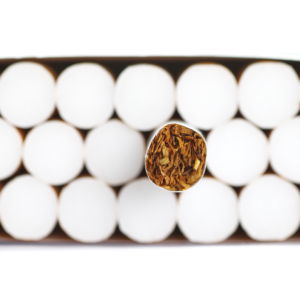An international authority on health has produced policies, during secret meetings, that ignore security concerns within illegal tobacco markets, a source warned Monday.
The World Health Organization (WHO) is a leading international authority on healthcare, but former federal agent Thomas Lesnak warns political agendas and secret meetings have resulted in an echo chamber of dangerous policies. He adds the agency would rather focus on easy targets like legal tobacco companies and not illicit trade.
“No one really wants to talk about what the facts are, what the real numbers are,” Lesnak told InsideSources. “It’s easy to say I’m against the big tobacco companies. Politically it’s smart. There’s no downside to it except you’re ignoring what’s really going on out there.”
Lesnak currently works as an international brand integrity and security consultant. He previously served with the U.S. Department of State and the U.S. Bureau of Alcohol, Tobacco, Firearms & Explosives. Lesnak adds ignoring black market trading is dangerous because it means more funding for organized crime and even terrorism.
“They’re minimizing the illicit trade problem and the funding for terrorism and the funding for organized crime cartels,” Lesnak stated. “They don’t want to hear what the truth is. They want to keep some political agenda as opposed to the real issue of what illicit trade is.”
The Framework Convention on Tobacco Control (FCTC) is the main division for producing tobacco policies. It holds its meetings in private and often does not seek input from legal tobacco companies and law enforcement. Interpol, for instance, can’t register for many WHO conferences.
“If WHO isn’t listening to everyone and validating the information, they’re not getting the true numbers, they’re not getting a true picture,” Lesnak noted.
Lesnak adds that legal companies and law enforcement have an incentive to track illicit trade. Allowing them to share their findings is likely to result in better data on which to base policy. The WHO, for instance, doesn’t track shipments of raw materials used to make cigarettes which could unveil secret factories and unreported sales.
“When you bring it up at some of these meetings, they literally don’t want to hear it because they have an agenda,” Lesnak said. “We start playing tapes, we show them videos, we show them shipping records to say this is not anecdotal. There are hundreds of billions of sticks every year making their way around the globe.”
The WHO has significant influence when it comes to policy recommendations. Its research is often viewed as unbiased and reliable. Lesnak warns this influence could be troublesome when divisions like the FCTC come out with questionable policies that they demand countries implement.
“They all go to what they think is the unbiased WHO and the tobacco protocols,” Lesnak stated. “Their senior management, even within our own government, use that as the bible for what’s going on out in the world.”
FCTC has not always been the most accessible when it comes to external viewpoints and media scrutiny. It often holds its private meetings in difficult to reach places that aren’t friendly to the media. Last year the meeting was hosted in Turkmenistan.
“Even with the WHO’s own numbers, which are very low, illicit tobacco would probably be the second largest tobacco manufacturer in the world,” Lesnak also noted. “The bad industry is almost as large as the legitimate industry, and we don’t focus attention on it.”
The British Medical Association released a report in 2011 criticizing some policies that the agency has unveiled. The report noted that a lack of outside expertise has resulted in a failed protocol for eliminating illicit tobacco trading.
The WHO and the FCTC did not respond to a request for comment by InsideSources.

